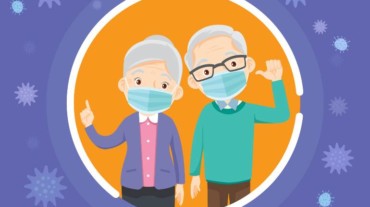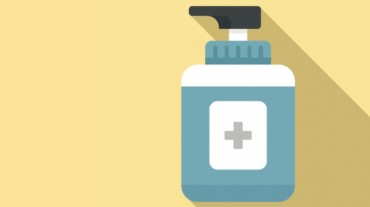
Coronavirus… who would have thought that a virus can bring the entire world to a halt? With anxieties flying high and Indian being in the middle of an intense three-week lockdown, needless to say: this is a challenging time for us all.
But adds to our anxiety is the fact that the elderly are the most vulnerable of the lot. And when yesterday, the news of Prince Charles being covid-19 positive hit the web, everyone started talking about age being a factor once more.
Being young doesn’t make you invincible, but there is no doubt that your aged parents are more at risk-especially, if they are dealing with underlying health issues.

But before you panic and draw any conclusions looking at your parents’ medicine cabinet, it is always better to have a fact check. That’s why the Indian Council of Medical Research (ICMR) is answering the most frequently asked questions (FAQ) on coronavirus and your parents’ health to dispel any myths. Here’s a quick look.
1. My parent(s) is dealing with heart disease, diabetes, or hypertension so does that mean s/he is at a higher risk to get coronavirus infection?
According to ICMR: no. People with hypertension, diabetes, or heart diseases are at no greater risk of getting the infection than anyone else.
2. Is my parent(s) at a greater risk of severe illness or complications once infected with coronavirus, especially if s/he has heart disease or diabetes?
The majority, which is 80% of people diagnosed with covid-19 will have mild symptoms of a respiratory infection (fever, sore throat, and cough) and make a full recovery. Some people with diabetes, hypertension, and heart diseases including heart failure may develop more severe symptoms and complications. Therefore, they require extra care.
Also, read: 7 things experts suggest you must do when your ageing parents get too cranky to handle
3. If my parent is a diabetic then is s/he more prone to covid-19?
In general, you know that people with uncontrolled diabetes are at an increased risk of all infections. People with diabetes are not at a higher risk of acquiring the infection, but some individuals are prone to more severe disease and poorer outcomes once infected.
Also, watch:
Hence, follow your diet and exercise routine (to the extent possible), take your medications regularly, and test your sugar levels frequently so as to keep your diabetes under control. When diabetic patients become sick, they may require frequent monitoring of blood glucose and adjustment of drugs including insulin, small frequent meals, and adequate fluids.
Select Topics of your interest and let us customize your feed.
PERSONALISE NOW4. I’ve heard blood pressure medicine make covid-19 worse in people?
After review of the available information, the consensus of various scientific societies and expert group of cardiologists is that currently there is no evidence that the two group of drugs: ACE inhibitors (Ramipril, Enalapril, and so on) and angiotensin receptor blockers (ARBs) (Losartan, Telmisartan and so on) increase the susceptibility or severity of covid-19.
These drugs are very effective for heart failure by supporting your heart function, and controlling high blood pressure. It may be harmful to stop these medications by yourself. This can worsen your heart condition.
5. What medicine can I give to my parents for pain or fever?
Some types of painkillers like ibuprofen are found to worsen covid-19. Such drugs are known to be harmful for heart failure patients and may increase your risk of kidney damage. Avoid NSAIDs or take them only when prescribed by your doctor. Paracetamol is one of the safest pain killers to use if needed.

6. What should I do if my parents exhibit symptoms suggestive of covid-19?
In case you get fever, cough, and muscle pain without shortness of breath, call your doctor and seek advice on the phone. They need to stay at home (at least for 14 days) and avoid close contact with other family members and maintain hand hygiene and correctly wear a medical mask. If there is shortness of breath or worsening symptoms like excessive fatigue, visit your doctor.
But, at the end of the end it’s all about prevention rather than cure. That leads to the final question.
7. How can I sanitize my home to keep my parents safe?
Virus particles can persist for upto three days and therefore it is important to maintain hygiene of your surroundings. “Wash the rooms, tables and other surfaces with floor cleaners or even simple soap solution and sanitize your hands with hand sanitizers or by washing when you touch unknown or suspicious surfaces,” instructs the ICMR.

So, there you go. We hope that you got the answer to all your queries. Apart from this, ensure that your parents don’t go out of the house. Talk to them if they feel bored. Watch movies with them, cook for them, or maybe revisit those old photo albums and relive those good old memories.
India has already issued a 21-day nationwide lockdown to prevent the spread of the virus. Play your role and help the government in fighting the coronavirus menace and keep your family safe.
(With inputs from IANS)